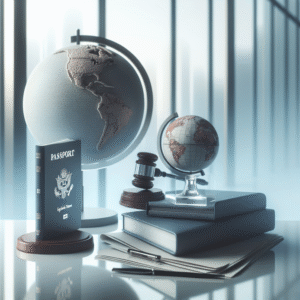Understanding the roles of consulting and testifying experts is fundamental in legal proceedings. These two expert types serve distinct purposes in litigation, with consulting experts focused on advisory roles and privilege protections, while testifying experts provide key courtroom testimony. Recognizing these differences is essential for developing effective case strategies and ensuring compliance with privilege rules.
This comprehensive guide explores consulting and testifying experts’ unique roles, legal implications, and strategic considerations. Attorneys and legal professionals will gain clarity on disclosure requirements, the application of privilege, and case-winning practices for selecting and working with these experts. LegalExperts.AI supports these processes by offering advanced resources and tools for expert selection and litigation management.
Introduction: Understanding the Role of Consulting Experts
Consulting experts play a critical advisory role in legal proceedings. Their work, often protected under legal privilege, assists attorneys in developing strategies, analyzing evidence, and preparing cases without the obligations of courtroom testimony.
Testifying experts, by contrast, serve as witnesses at trial, explaining technical concepts or professional opinions to the court. Their contributions are subject to strict disclosure and discovery rules, prioritizing transparency and credibility.
What is a Consulting Expert?
A consulting expert provides specialized knowledge and support during litigation. Their work typically includes evaluating technical issues, guiding case strategy, and aiding attorneys in understanding complex evidence. Unlike testifying experts, their opinions are generally not shared outside the legal team, enhancing confidentiality.
Legal privilege often applies to consulting experts, shielding their work under the work-product doctrine. This protection preserves their assessments as confidential, barring disclosure during litigation unless privilege is waived.
What is a Testifying Expert?
Testifying experts differ from consulting experts in their role as witnesses, presenting opinions or analysis in court. These experts are necessary when technical topics or specialized insights are pivotal to a case’s argumentation.
Disclosure is a defining characteristic of testifying experts. Legal requirements demand full transparency of their qualifications, methodologies, and opinions, ensuring fairness and thorough vetting by opposing counsel.
Key Differences Between Consulting and Testifying Experts
Understanding the distinctions between consulting and testifying experts helps attorneys utilize their strengths effectively while adhering to legal and ethical guidelines. Their respective roles, privilege protections, and discovery obligations create clear contrasts.
What’s the Difference Between a Consulting and a Testifying Expert?
Confidentiality and disclosure are the key areas where consulting and testifying experts differ. Consulting experts work behind the scenes, offering advisory support. Their work enjoys a higher degree of confidentiality. In contrast, testifying experts are subject to extensive scrutiny, as their findings and opinions become part of the public record during litigation.
Strategically, consulting experts are suited for developing case theories and evaluating evidence securely. Testifying experts, however, directly influence courtroom outcomes through credible and persuasive testimony.
Privilege and Discovery Rules: What You Need to Know
Legal privilege protects consulting expert work under the work-product doctrine, ensuring that their analysis and recommendations remain confidential unless privilege is intentionally waived or breached. This protection can be lost if the consulting expert’s findings are shared with third parties or converted into testimony.
Testifying experts, on the other hand, face full discovery obligations. Their reports, methodologies, and communications are subject to disclosure, reducing confidentiality in exchange for legal transparency.
Table: Comparison of Consulting and Testifying Experts
| Aspect | Consulting Experts | Testifying Experts |
|———————|————————–|————————–|
| Privilege | Usually protected | Rarely protected |
| Discovery Obligations | Minimal | Full disclosure required |
| Litigation Role | Advisory | Court testimony |
Roles and Responsibilities: When to Use Each Expert
Attorneys must determine whether a consulting or testifying expert best serves the needs of their litigation. Each expert type provides distinct value depending on case goals and procedural contexts.
When Should Attorneys Use Consulting Experts?
Consulting experts are invaluable for advisory purposes. They help attorneys formulate strategies, analyze evidence, and interpret technical issues behind the scenes. Their work-product privilege minimizes exposure to opposing counsel, making them vital in early case preparation.
Why Hire a Testifying Expert?
Testifying experts become critical when a case requires expert opinions or specialized knowledge to bolster arguments in court. Their ability to articulate findings persuasively can strongly influence judicial outcomes, particularly in complex cases demanding technical clarity.
Common Mistakes When Using Experts & How to Avoid Them
Errors in selecting or managing experts can compromise case effectiveness. To avoid these pitfalls:
- Ensure your expert’s specialization matches case demands.
- Prepare your expert thoroughly for depositions or trial.
- Maintain objectivity, avoiding overt bias or overreach in testimony.
Consulting Expert Privilege: Essential Legal Considerations
Legal privilege is one of the most important aspects for legal professionals when using consulting experts. It protects sensitive information and supports effective litigation strategies.
What Privilege Does a Consulting Expert Have?
Consulting expert privilege derives from the work-product doctrine, safeguarding attorneys’ access to confidential assessments and strategy tools. Privilege is assured when experts operate strictly in an advisory capacity without crossing into testimony.
When and How Is Privilege Lost?
Privilege is waived when consulting experts share findings outside the privileged circle or transition into a testifying role. Attorneys must carefully manage expert boundaries, ensuring work-product protections remain intact.
Practical Steps for Working with Experts
Engaging experts is a strategic process that requires careful planning and alignment with legal requirements. Following structured steps improves both compliance and litigation outcomes.
Checklist for Selecting and Engaging Experts
When selecting consulting or testifying experts, attorneys should consider:
- Whether the expert aligns with case-specific needs.
- Their qualifications and prior litigation experience.
- Transparency around cost expectations.
Cost and Budgeting for Expert Services
Expert costs vary widely depending on specialization, geographic region, and the scope of services. Attorneys should develop detailed budgets to differentiate between consulting and testifying expert requirements and avoid financial surprises during litigation.
Real-World Examples of Strategic Expert Usage
Legal experts have demonstrated the value of consulting experts by protecting sensitive strategy development from discovery. Likewise, testifying experts have strengthened cases by providing influential, cross-examination-proof testimony that has swayed court decisions favorably.
Conclusion: Leveraging Experts for Successful Litigation
Consulting and testifying experts significantly impact litigation success by offering specialized insights or compelling courtroom testimony. Selecting the right expert involves understanding their roles, legal privileges, and strategic benefits. LegalExperts.AI provides reliable solutions.



